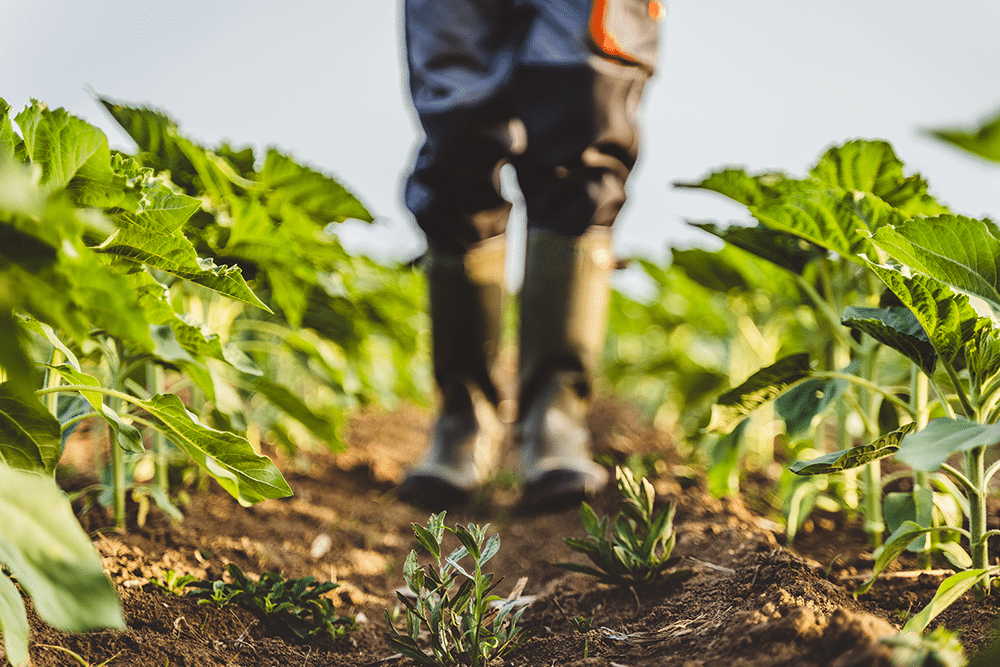“Soil is a living ecosystem, and it’s farmer’s most precious asset. A farmer’s productive capacity is directly related to the health of his or her soil.” – Howard Warren Buffet
When you walk on the ground, what do you see?
Dirt, right?
It makes your shoes brown and your clothes dirty; you touch them and wash your hands.
Let’s dig a little deeper.
ZOOM IN on that dirt, AKA soil, now what do you see?
You see an entire living ecosystem.
You will see living things like bugs, fungi, bacteria, and non-living decaying matter.
You will also see life flourishing, where the decaying matter is used as food for the living matter, breaking it down and providing nutrients for the soil.
Nutrients that help plants grow.
Without that ecosystem underneath our feet and the biological diversity in our soil, plants won’t grow, food won’t be sowed, and our planet will not thrive.
Our soil is our planet’s soul.
And healthy soil is needed for our planet to thrive.

How Organic Farming Practices are Bringing Our Planet’s Soil Back to Life: What’s happened to our soil?
“In nature, nothing exists alone.” – Rachel Carson
Just like any ecosystem, if disrupted, over time, things change. Our planet’s soil is no exception.
Decades of modern and conventional agricultural practices, such as monoculture farming, have disrupted the planet’s soil health and quality, especially our farmlands and wetlands.
But to understand how this has happened, we must first understand carbon and its role in soil.
Carbon, the cool chemical keeping our soil healthy
To keep it simple: carbon is crucial for healthy soil.
Over the years, conventional farming, like tillage and drainage, deforestation, burning fossil fuels, and drainage of wetlands, has decreased the organic carbon content of the soil, disrupting the balance of the organic matter.
These disruptions are microscopic.
To the naked eye, you wouldn’t be able to notice.
But deep beneath our feet, when the soil’s carbon levels change, the delicate balance of organic matter starts to change, having a trickle-down effect on:
- Our food
- Climate
- And water systems
Improve the soil, change the planet.
Modern agricultural practices’ negative impact on our soil doesn’t emit any feel-good emotions.
We feel the same.
But we also have good news.
We, as humans, can work to restore the soil’s carbon levels through organic farming practices.
The more we’re educated about the negative impacts that historical farming practices have on the planet’s soil, the more we will reach for organic foods that are made using sustainable practices designed to restore the health of the soil.
Organic farming is regenerative by nature.
It helps to heal by applying organic matter (such as manure), crop rotations and implementing low soil disturbance tillage.
And it’s the future of our food.
Kiju’s Mission: We Take Organic Seriously
Kiju’s mission is aligned with the task of all organic farmers and companies: to protect your and your family’s well-being and the planet’s well-being. We want our families to be raised in a world of balance and harmony, where we do our duty to protect the soil on which we walk every day. We can do that through soil protection and conservation; we can do that through organic farming.
